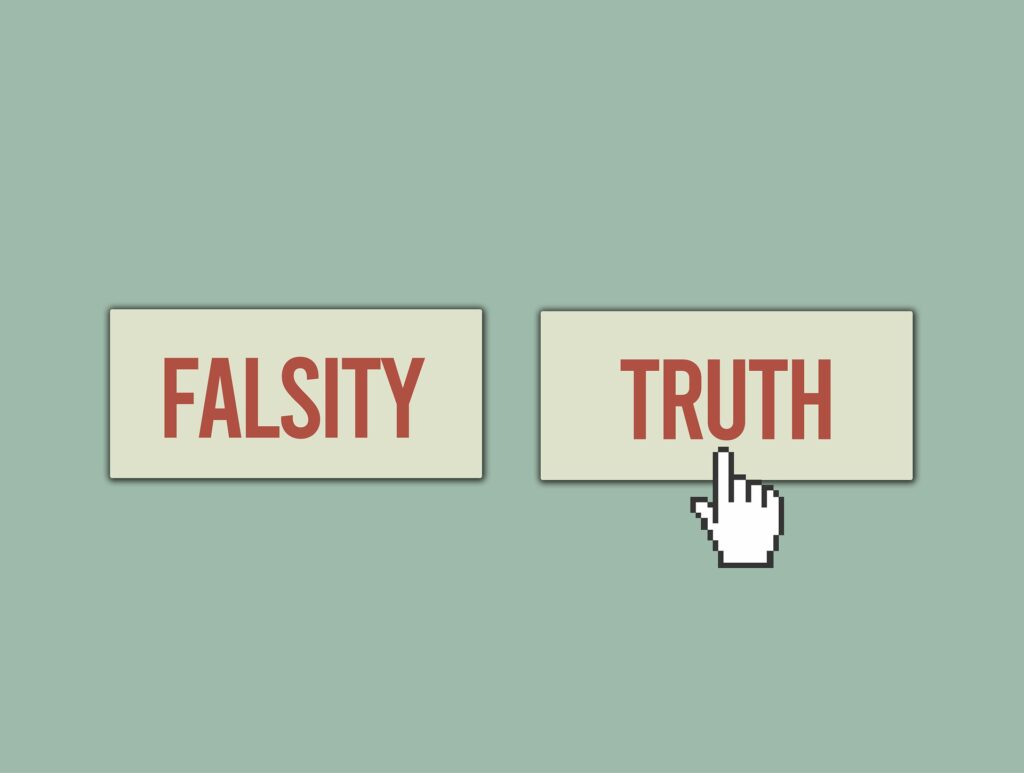Introduction
Following the etymology and basic definition of the term (comprehension), we will now proceed to the division of the term theology (extension). The first bifurcation of theology is into true and false theology. In this article, we will define each, give a distribution of false theologies, and understand the purpose of this division. This obviously assumes a non-relativist position of truth and a non-agnostic position of knowledge. I will say briefly against the relativist theory of truth that it self-contradicts its own statement. To say that what is true is relative to an individual is in itself a truth statement claiming not to be false. Furthermore, the law of noncontradiction states that something cannot be true and false at the same time. This law exists necessarily, for in order to try to prove it wrong, one must use it. Moreover, I will say briefly against agnosticism or skepticism that certainty is a false standard of truth. Also, any reason the skeptic gives must itself be subject to doubt ad infinitum. Thus, both the ontological and epistemological errors surrounding truth can be easily refuted. Truth is here defined as that which corresponds to reality, with false being that which does not conform to reality.
False Theology and Its Distribution
With truth being established and defined, there must be a notion of what is false. If the object of a study exists and can be known, then there must be true and false statements about it. Due to our own human limits, imperfections, and sin, we conceive of God and things in relation to him in a way that does not conform to what actually exists. Thus, man is capable (at least in this life) of having a false theology arising from his corrupt nature and vain imaginations. False theology is of those who err in divine things or rather a false opinion concerning God, his will, and or his works which is almost impossible to list exhaustively due to the wide variety of views taken. In the following list of false theologies, I will provide the name and in a parenthetical statement show the main falsity thereof. False theology can be divided into those who explicitly deny the Christian religion and those who speak falsely of it. Belonging to the first category is Atheism (denial of God’s existence), Agnosticism (denial of our ability to know God exists), Pantheism (affirmation of God being nature or part of us), Polytheism (affirmation of multiple gods), (Neo) Paganism (wide variety of beliefs and practices), Judaism and Ebiotinism (denial of Christ as Messiah and Son of God), Islam (denial of Christ’s divinity and the trinity) Eastern Religions or Philosophies of Confucianism, Taoism, Hinduism, Buddhism, Sikhism, Jainism, Shintoism, Zoroastrianism (wide variety of practices and beliefs), and Animism (affirms that everything has a spiritual nature). I’m sure there are many more, but this list will suffice. The second category, i.e. those who speak falsely of Christianity, can be further divided into heresies and schismatics. The grouping of heresies can be further divided into trinitarian, Christological, and miscellaneous. Of the trinitarian heresies belongs Modalism/Sabellianism which the Oneness Pentecostals fall into (2nd century, 20th century-Father, Son, and Holy Spirit are only different manifestations/modes of God), Patripassianism (2nd century-Father and Son both suffered on the cross as Christ), Psilanthropism (2nd century-Christ is merely human), Tritheism (4th century-three gods), Collyridianism (4th century-Father, Son, and Mary make up the trinity), Binitarianism (4th century-Holy Spirit is not a person), Subordinationism (4th century-Son and Holy Spirit are not co-equal with the Father), Partialism (Father, Son, and Holy Spirit each make up 1/3 of God), Macedonianism (Holy Spirit is created), Unitarianism (God is not three persons), Socinians, Jehovah’s Witnesses, and Mormons all deny the trinity and Christ’s divinity and thus fall under heresy. Eastern Orthodox, Church of the East, and Oriental Orthdox fall under this category due to their denial of the filioque. Of the Christological heresies belong Docetism (1st century-Christ did not have a human body), Adoptionism (2nd century-Christ became the Son of God at some point in his life), Arianism (4th century-Christ is not fully God), Monophysitism (4th century-Christ has only one nature, the divine), Apollinarianism (4th century-Christ did not have a human mind), Anomoeanism (4th century-Christ is not fully divine), Nestorianism (5th century-Divine and human nature are not united in one person, but rather two separate persons, leading to the denial of Theotokos), Eutychianism (5th century-Christ is a mix of divinity and humanity), and Monothelitism (7th century-Christ has only one will). Of the miscellaneous group belongs Judaizers (1st century-Imposition of the ceremonial law to be saved), Montanism (2nd century-public divine revelation continues), Gnosticism and the various sects thereof (2nd century-material world is evil, only saved by special knowledge), Universalism (2nd century-affirms everyone will be saved), Marcionism (2nd century-God of Old Testament is different from the God of New Testament), Adamites (2nd century-hippies [look it up]), Novatianism (3rd century-Could not be forgiven if professed one professes they do not believe in Christ under the threat of persecution), Arabici (3rd century-soul dies with the body), Donatism (4th century-validity of sacrament is dependent on moral character of the minister), (Semi) Pelagianism (5th century-humanity can save themselves without God’s grace), Quietism (17th century-Christians should do and say nothing and only contemplate God), Antinomianism (Christians are free from obeying the moral law), Audianism (God possesses a human form), Messalianism (variety of beliefs). Roman Catholics fall under this category due to their anathematization of the gospel at the Council of Trent. Those who practice an impure administration of the sacraments fall under this category (Anabaptist, Baptist, Brethren, Pentecostal, Seventh Day Adventists, Non-Denominational etc.). Many false theological movements have emerged in the recent centuries as well such as, Restorationism, Pietism, Holiness Movements, and Charismaticism. Belonging to the schismatic group are the Lutherans (Christological errors of communication idiomatum) and Anglicans (denial of the regulative principle of worship and episcopal form of church government). The list can go on, but I think I managed to cover the biggest ones. A third group can be formed denoting intracofessional Reformed disputes which can hardly be called false theologies since it is usually on minor points but do still err in divine things. Here belongs the supralapsarians (false due to the belief that God’s election and reprobation are logically antecedent to creation and the fall), Amyraldianism (false due to the affirmation of hypothetical universalism), and Cocceianism (false due to covenant theology errors).1 There is so many to list that I most likely missed some major ones but these are the one’s that came to mind.2
True Theology and Necessity of Distinction
On the other hand, true theology is defined as knowledge and wisdom of divine things which is further divided into archetypal and ectypal. The necessity of this distinction arises from the fact that the word itself does not denote truth or falsity taken as a discourse concerning God. Furthermore, all false theology is excluded from participation in the archetype based on this division. It also excludes false discourse concerning God from knowledge and faith and instead subjugates it to mere opinion. Thus, false theology does not come from valid reasoning (science) or rest on authoritative testimony (faith). We can further conclude then, that false theology is not from God’s own doing, but only man’s own fault. This series will delineate a true theology and only explain false theologies as a means to fairly argue against it.
Conclusion
The first basic division of theology into false and true implies the ontological reality of theology and the epistemic access we have to it. There are sadly many false theologies one must sift through to get to true theology which will be done in the polemical sections of this series. The division following false and true theology is archetypal and ectypal which will be explained in the next article.
- The condemnation of false theologies here presented refer to the institution rather than the individual ↩︎
- I had trouble finding a way to divide false theologies, so there is probably a better way to categorize them. I found trouble with whether I should state the belief or the denomination since these are two different things and could not come to a consistent conclusion. So, I tried to denote where the ones named are actual institutional denominations or just a belief that was held in church history. Admittedly, there is probably a better way to categorize false theologies but I could not find one; however, this list will suffice to show areas wherein polemics will be had. ↩︎

